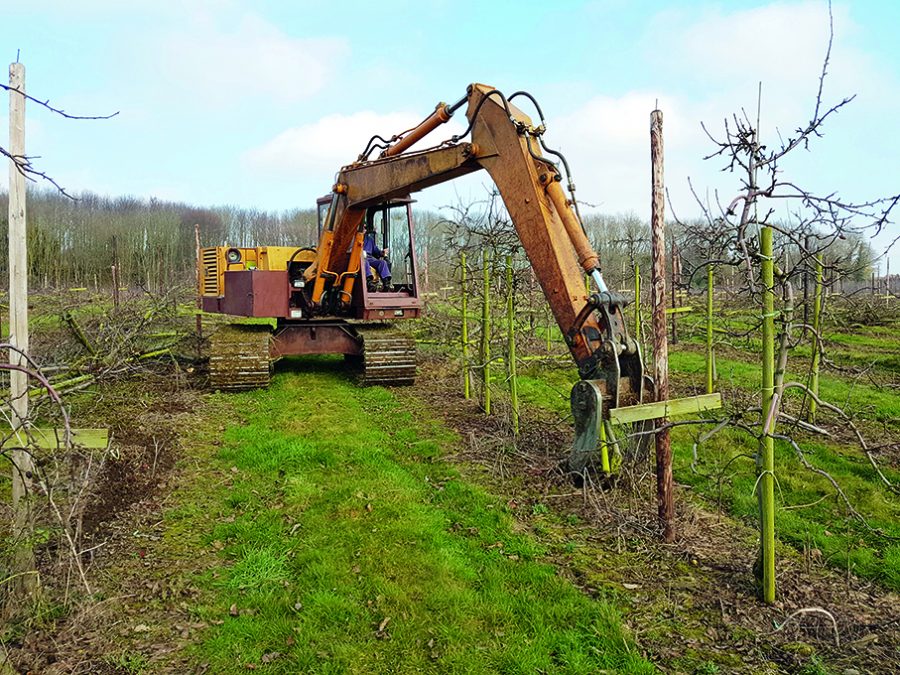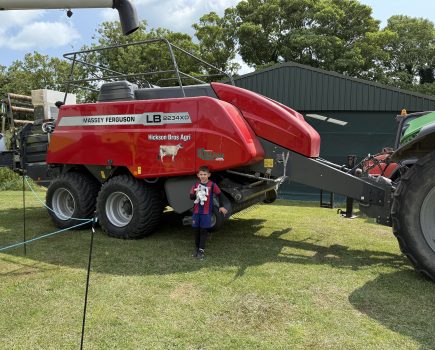Q4 is always a challenging one in business, getting your brain back into gear after what was hopefully a wonderful Christmas with a memorable New Year’s Eve party shortly afterwards.
There’s the delightful small avalanche of emails, answering messages from weeks ago, the planning for the year ahead, budget reconciliation, annual accounts to prepare and possibly also a few members of staff who have decided to jump ship during their Christmas break. Can you tell I’m writing this on ‘Blue Monday’?
If you’re a French apple farmer you are using the start of 2023 to uproot orchards and deliver them, along with rotten apples, to the entrance of power plants installed to run Carrefour and Intermarche purchasing offices. Direct action from another part of our industry suffering from the current ‘food is cheap’ culture.
Reading through postings on LinkedIn from the global farming industry, there is nowhere that isn’t facing an utter crisis right now – exorbitant costs of inputs, labour shortages, radical changes in environmental policies as governments struggle to hit United Nations sustainable development goals and a global populace struggling to pay for anything, let alone a healthy, sustainably produced, balanced diet.
Before I get into trouble with the editor and dive down into what is happening with those struggling for food, I’ll move onto the positives I have seen.
Google has joined Dyson in investing enormous amounts of money into farming technology. The start of the year saw Google + JSR Corporation join a $13.7m investment in the farm management platform Cropin. The total deal, worth $15m, is destined for a cloud-based platform which will unify the company’s apps and services and aims to digitise the whole agricultural value chain – giving efficiencies in farm management, remote sensing and data collection for traceability.
Google’s parent company, Alphabet, is also working on hardware prototype robots destined for crop management tasks in the future and is also part of a one million hectare regenerative farming consortium testing new practices and technology-based systems.
Where I’m getting to is that if the tech giants are putting money into farming, there is sight of a good future. Clearly there is the green/carbon offset agenda for big business at the beginning of their engagement, but just think of what the potential will be when they get into tree fruit and its carbon holding capacity when compared to a field of grass, corn or alfalfa?
For those wanting to raise issues about their current situation, especially regarding the retail environment, the annual Grocery Code Adjudicator survey has started its six weeks call for action. In 2022 the adjudicator received 2,500 responses, a considerable uplift on previous years. With the current uneconomic returns being reported I would imagine that there will be another considerable uplift this year.
The 10th survey will have 14 retailers within its scope. It remains wholly confidential and the best opportunity for British retail suppliers to share their experiences of the previous year. The 9th survey continued to demonstrate clearly the need for better returns; it also showed a fall in perceived code compliance.
The 2023 results will show if suppliers believe retailers have improved or whether compliance has worsened again during tough trading conditions. Mark White, Groceries Code Adjudicator, said: “Since my last survey, inflation has continued to affect the entire groceries sector, straining the relationships between retailers and suppliers. I am concerned about how the retailers are responding to CPI (cost price increase) requests and whether this pressure is causing other issues to arise.
“I want to hear from as many suppliers as possible so I can understand the ongoing impact of inflation and other issues affecting suppliers. This will help me to work with the retailers to ensure they are treating all suppliers fairly and lawfully.”
The GCA survey can be found at: www.gov.uk/government/news/gca-launches-2023-annual-survey
And finally, congratulations to Sally Flannagan who has been appointed the first CEO of the Marden Fruit Show Society. To be able to build the society to a point where we would warrant a senior executive of Sally’s calibre has been a long-term aspiration of mine; I couldn’t be happier that we were able to appoint Sally.







